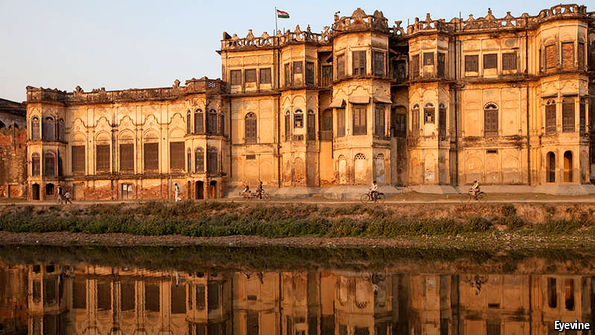An obsession with expropriationReturn confiscated property? Never, says India’s government
Even if it has to rig a parliamentary vote to prevent it

Mr Modi’s government has shown a strange determination to pass the bill. Five times—a first for India—since coming to power in 2014 it has imposed the law as a presidential “ordinance”, a legal sleight of hand left over from the British Raj that allows governments to impose laws by decree as long as they are confirmed by parliament within six months.
What the legal mumbo-jumbo means is that some 2,100 properties seized in the wake of wars with Pakistan and China in the 1960s will forever remain the property of the Indian government. There is, of course, also a subtext: nearly all the property concerned belonged to wealthy Muslims, and the need to “tighten” the law reflects the fact that several of them or their heirs have successfully fought in Indian courts to reclaim it.
In 2005 India’s supreme court ordered the government to hand over most of the property of the former Rajah of Mahmudabad, once one of the wealthiest landowners in Uttar Pradesh, to his sole heir, Muhammad Amir Muhammad Khan. The late rajah lived briefly in Pakistan, and foolishly took its nationality before retiring to London, where he died in 1973. But his son grew up in India and never lost Indian citizenship. Armed, after 32 years of legal battles, with the supreme court’s ruling, Mr Khan did manage to secure some of the seized properties for a spell. But for the past decade successive governments have found ways to obstruct repossession.
He is, understandably, affronted by the government’s apparent obsession with preventing the return of property to a law-abiding Indian citizen, to the point of passing laws that are very likely to be overturned as unconstitutional. “I suspect there is a desire on the part of the present dispensation not to allow any Muslim to go beyond a certain limit,” muses Mr Khan. “The message is that we must do menial work, and study in madrassas so then they can blame us for being anti-modern.”
Source: The Economist March 18, 2017







